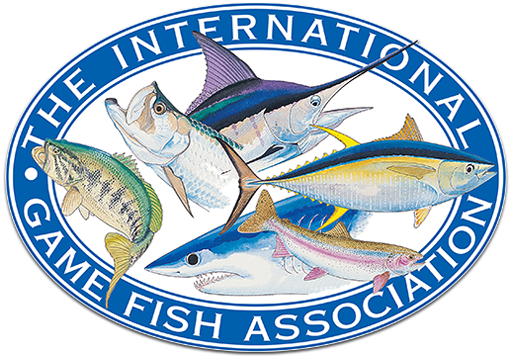The Chittums Skiffs Story:
Adapt, Evolve & Perfect
By Tom Murray
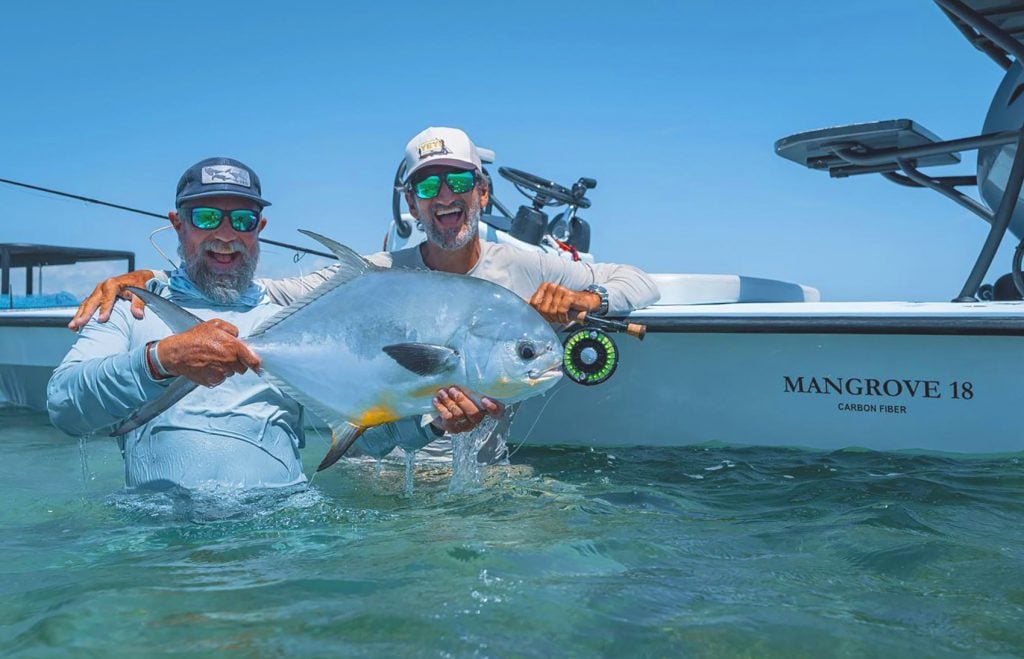
It began as a quest for perfection.
Hal Chittum co-founded Hell's Bay Boatworks in 1996 because there were no boats in the shallow-water fishing marketplace that came close to satisfying his exacting standards for design and performance.
Just a few years later, more than a thousand Hell's Bay skiffs were on the water, and the legendary entrepreneur, guide, and boat builder sold the company, as he was justifiably recognized and commended for launching a revolution with a skiff known as the Whipray.
Not one to sit idle, Chittum and renowned captain George Sawley promptly created another company, Chittum Skiffs, and immediately began the task of making Hal’s vision become a reality—a state-of-the-art flats skiff, superior to everything else on the market. And after what Chittum described as nearly a year of “chopping, cutting, adding, removing, de-rigging and re-rigging,” he and his team proudly introduced the Islamorada 18, or as Chittum prefers to call it, “the best damn skiff in the industry.”
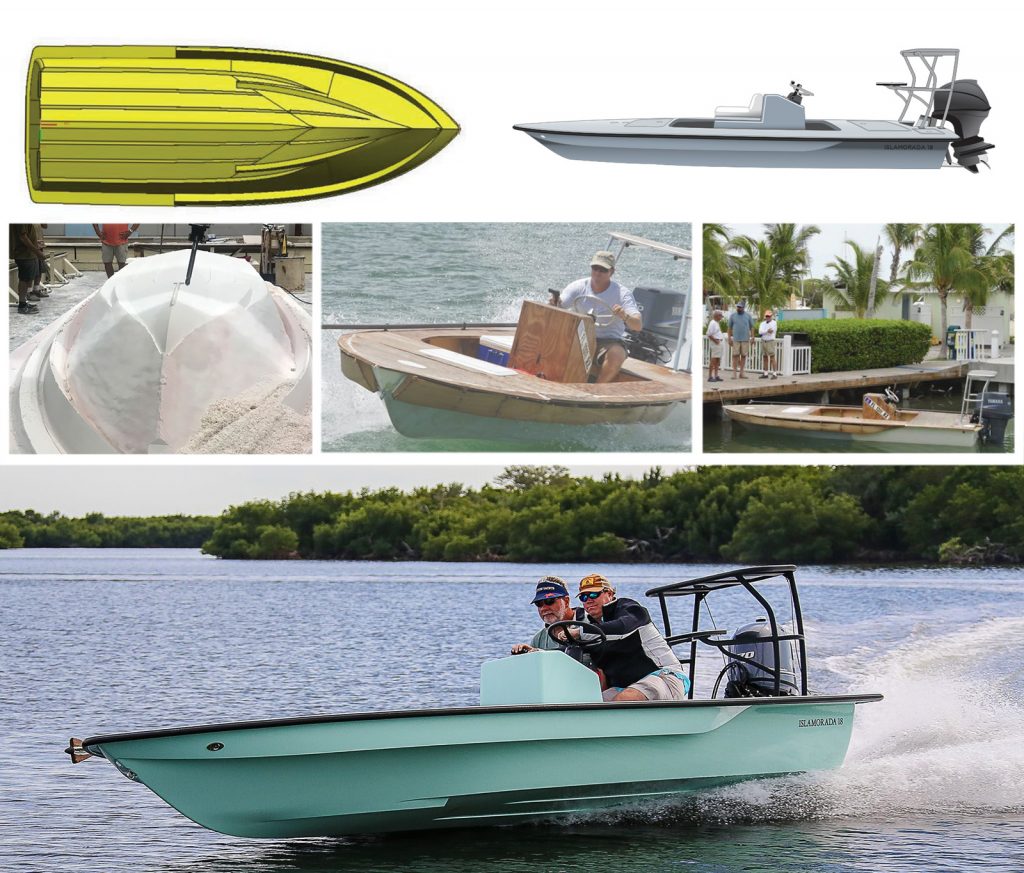
So while perfection was always the ultimate goal, the success of the Chittum brand is also the result of adapting, evolving, and never being satisfied, while relentlessly striving for constant improvement. That’s consistently been the case during every stage of production in the factory, and now it also applies to the recently invigorated campaign of managing the company through a transition and elevating the exposure of the brand.
This explains the hiring of Stephen Cunningham as CEO of Chittum Skiffs in August 2023. Cunningham has decades of experience as an entrepreneur, launching six start-up companies during his career. However, Cunningham quickly realized that this company and the Chittum brand were different from previous projects he had been involved with. At Chittum, both the reputation of the product and the passion of the personnel for building world-class boats was unlike anything he had experienced.
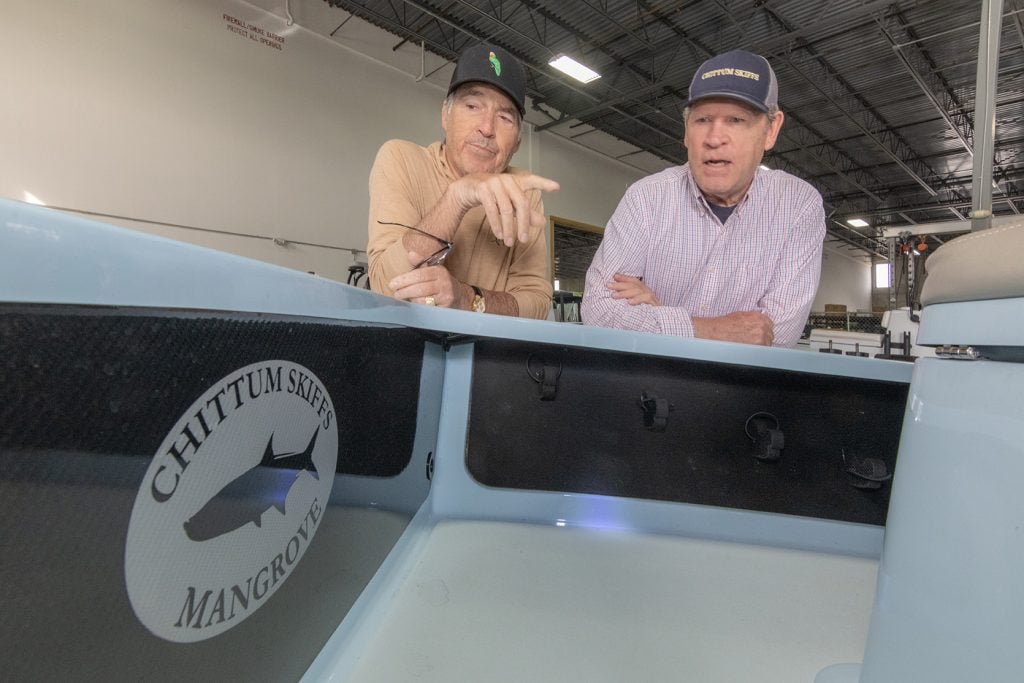
“It is amazing,” Cunningham says, “especially when you consider Chittum has only been around for seven and a half years. Hal and George combined to change the game of boat-building with the first design ever that meets all the needs of the best anglers out there, and the recognition and appreciation are enormous. The inshore angling community has been incredibly supportive of and complimentary about this boat, and it is a privilege to build on that history of innovation.”
Realizing the weight of the brand and the respected clientele using Chittum skiffs, one of the first steps Cunningham took as CEO was the formation of an Advisory Board of captains, which brought together a trio of respected and renowned fly fishing guides—David Mangum, JT Van Zandt, and Dustin Huff. While Chittum had worked closely with respected fishing guides from the start, this official formation solidified the company’s commitment to making the best product possible for the inshore flats aficionado.
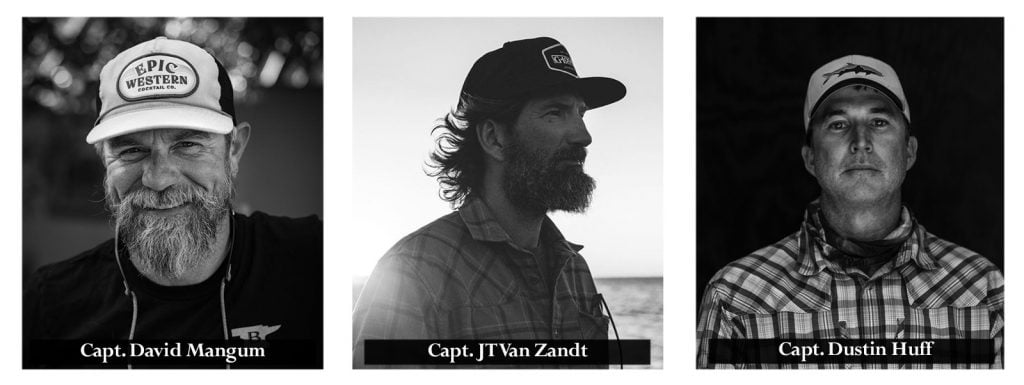
“Before Chittum came along, to really fish the entirety of the Keys, you needed two boats to do it,” says Huff. “One boat would have too much draft to get as shallow as you needed it to. And the boats that could get super shallow didn't ride well at all in rough water. When we were going 60 or 65 miles an hour, it would start to chinewalk and beat you to death.”
This is when Huff came up with an ingenious thought: Might adding a running pad to the Chittum keel eliminate the issue?
“Other boats previously had a padded running surface,” Huff hastens to clarify. “That idea was not mine at all. It was just my idea to incorporate it onto a Chittum hull, so, I worked out a deal with Hal and George to flip our tournament boat over and have them work a pad into the existing hull, and it was very successful after we did that.”
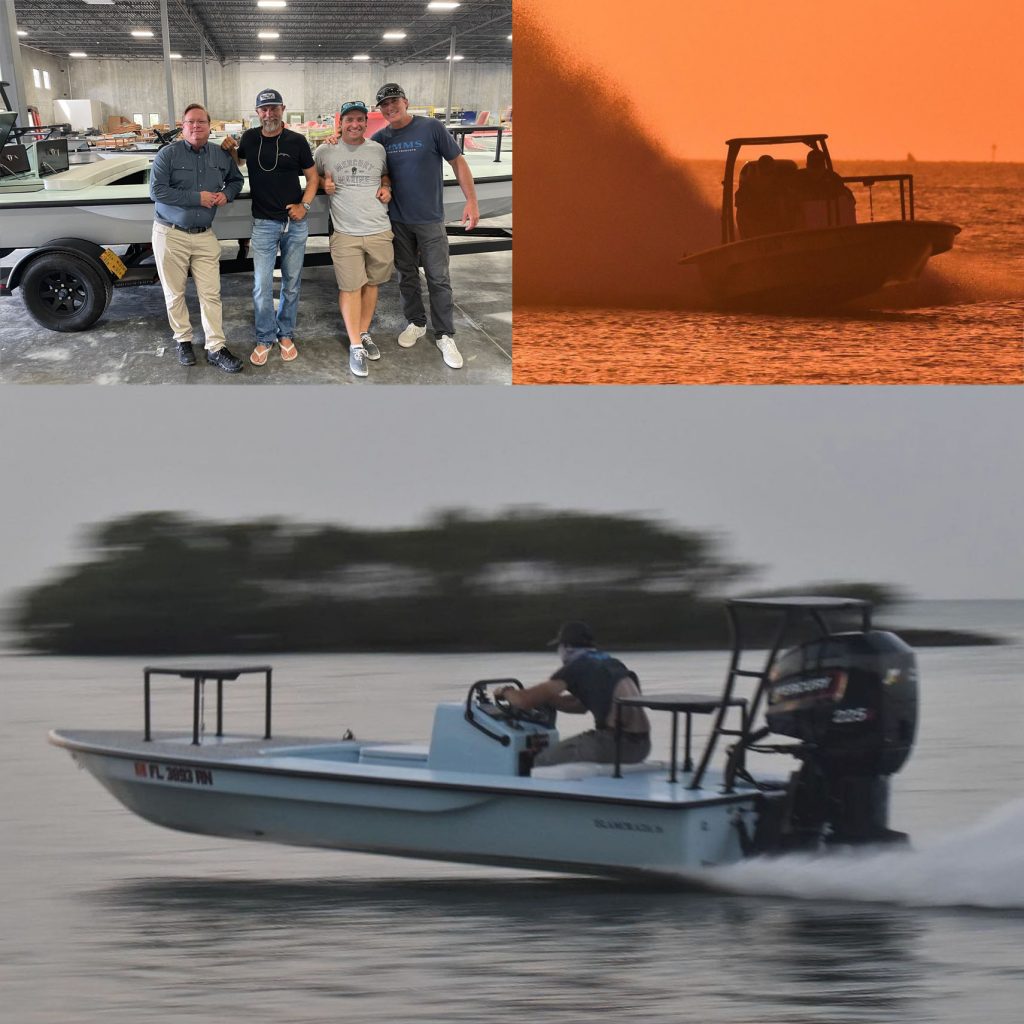
How successful was the change? Just ask IGFA Trustee Andy Mill, a long-time advisor to Chittum, who’s won more tarpon tournaments than anyone on the planet, and is one of only two people to have also won premier tarpon, bonefish and permit tournaments on fly.
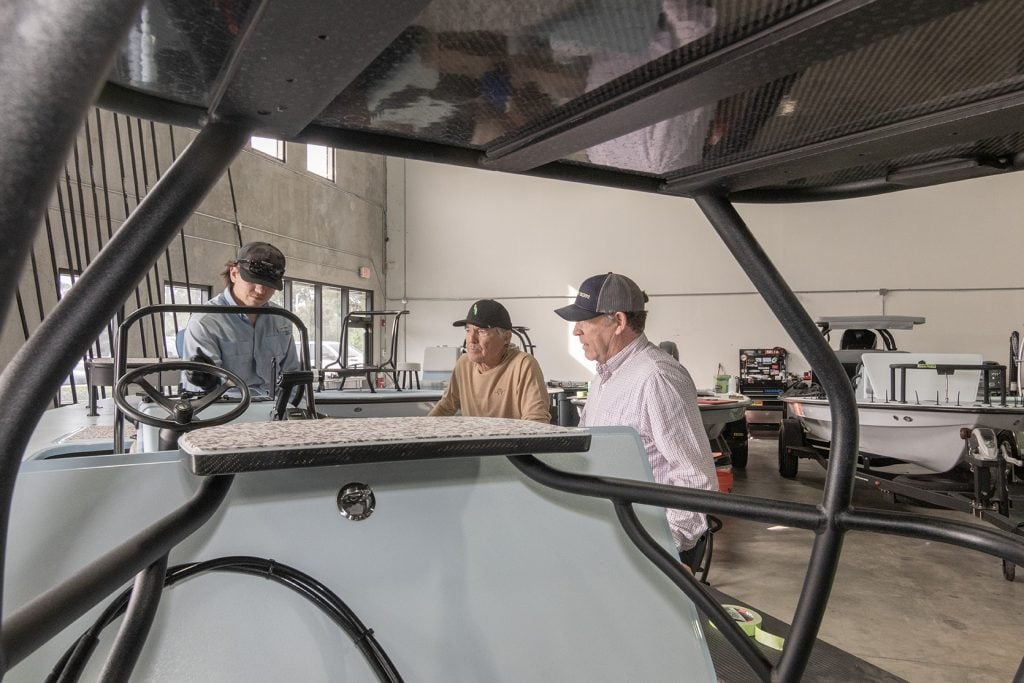
“It was a game-changer,” Mill asserts. “I saw those boats and thought these things are Ferraris, not only in speed, but they were the most magnificent boats I've ever seen. And they changed the tournament world, which has always been based on fast boats to pass other boats and get into your spots quicker. So in theory, if you can gain an extra hour on the field of fishing over a five-day period, you got five extra hours. It's a numbers game: The more fish you can throw your fly to, the more fish you can catch.”
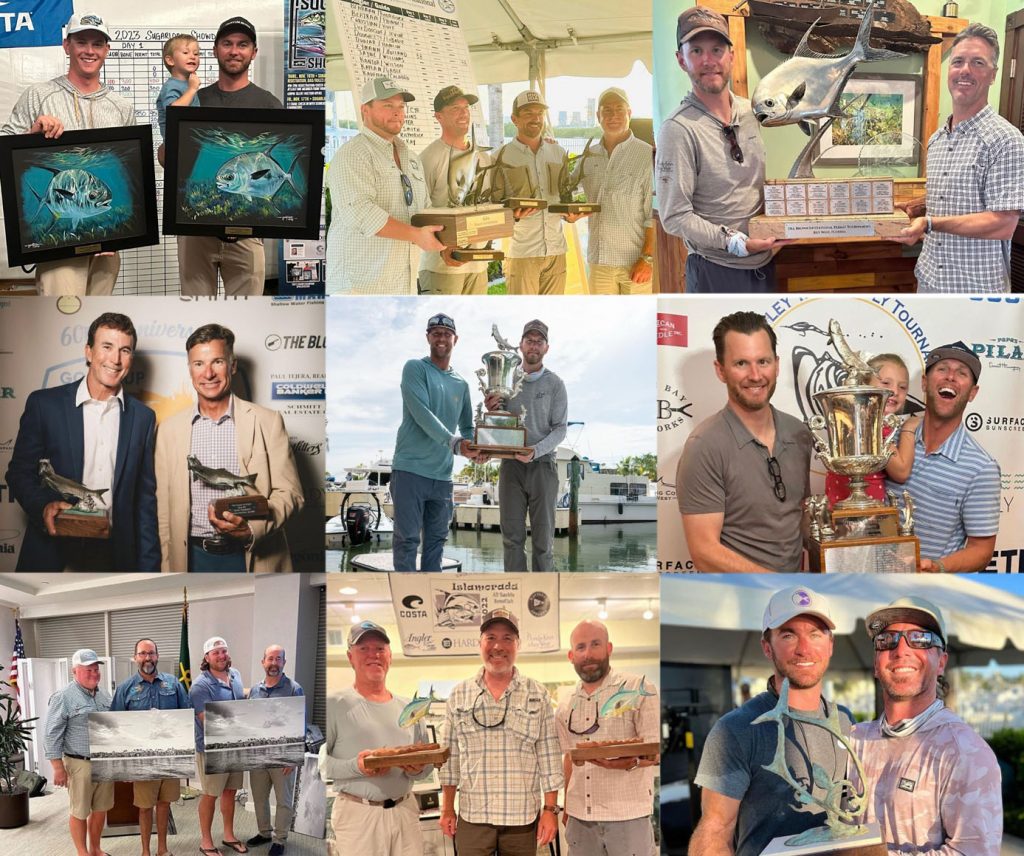
And while Mill, Huff, and many other tournament anglers strive to, as Huff explains, “go faster, safer,” in various tournament fishing events, speed is not the only characteristic anglers and guides are looking for from their skiff. Stealth and the ability to approach a target without being seen or heard is an extremely important component to building a great flats skiff, as renowned guide JT Van Zandt explains.
“The middle Texas coast is where I fish,” he explains, “and you're visually hunting fish and only casting when you see that target. It is basically hunting on the water with a fly rod, and you need a boat that's light enough and stealthy enough to be able to float and pole around in that sort of aquatic wilderness. And when it comes to achieving that goal, the Chittum is the highest evolved shallow water vessel on the planet.”

Along with his talent as a fly-fishing guide, Van Zandt is an accomplished craftsman, who once operated a woodworking business with more than 20 employees, creating everything from customized boats to exquisitely designed cabinets, furniture and millwork. For him, it’s no big leap to compare the artistry that once prevailed in his wood-working shop to what he sees with the production crew at the Chittum factory.
“It's a very rewarding team atmosphere when you work in a shop where everyone is doing something a little different, but all dedicated to one task,” Van Zandt says. “What’s so cool at Chittum is it took those crazy mad scientists and sea pirates, Hal and George, to bring the design together. And they end up with this ragtag crew of characters, all with an individual skill that add to a team that is world class in producing this fine custom thing, which happens to be a skiff that’s really hard to take your eyes off of. It's a very compelling piece of manufacturing.”
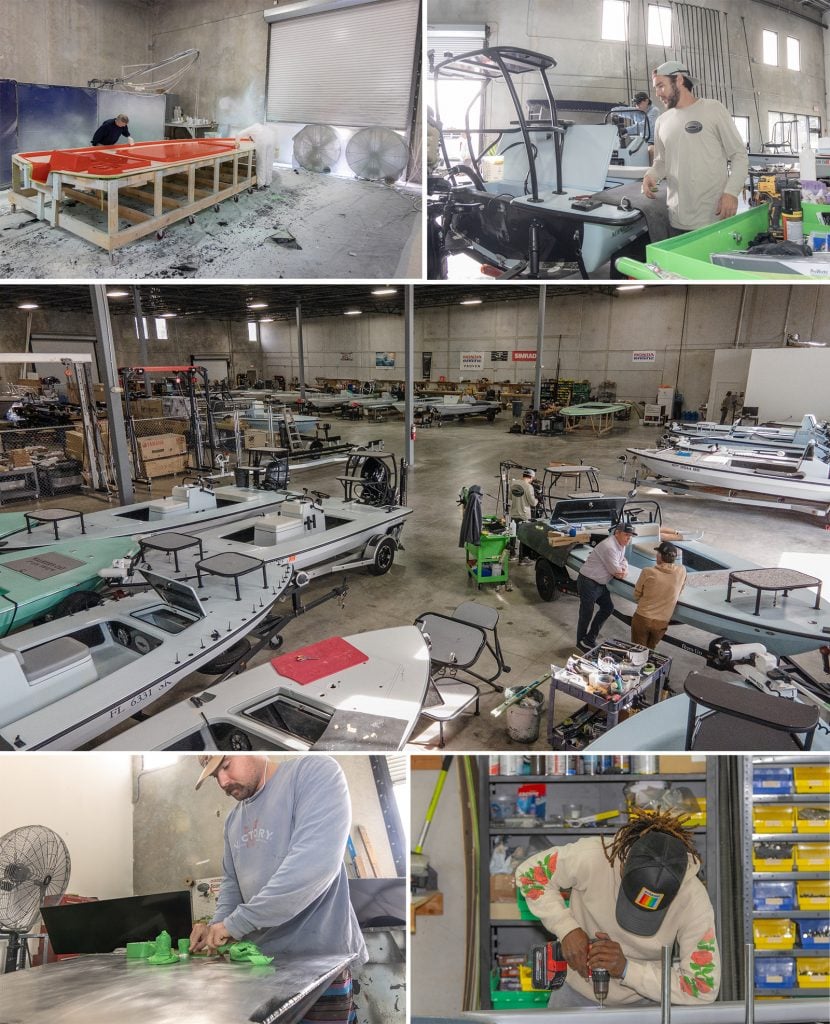
Cunningham, a basketball aficionado, compares the current Chittum operation to the halcyon days of the Chicago Bulls in the 1990s, when the team’s two three-peats added up to six NBA championships.
“Of course they had Michael Jordan,” he says, “but there was also Dennis Rodman, who was an incredible rebounder, along with all those idiosyncrasies of his. But those two guys were world class together, and everyone else coalesced as a team, and that's how I'm trying to manage the place, recognizing that there are different strengths and weaknesses to all of the players. But if I do my job right, I'm going be able to engage with the Rodmans as well as with the Jordans.”
All signs indicate Cunningham is off to an encouraging start.
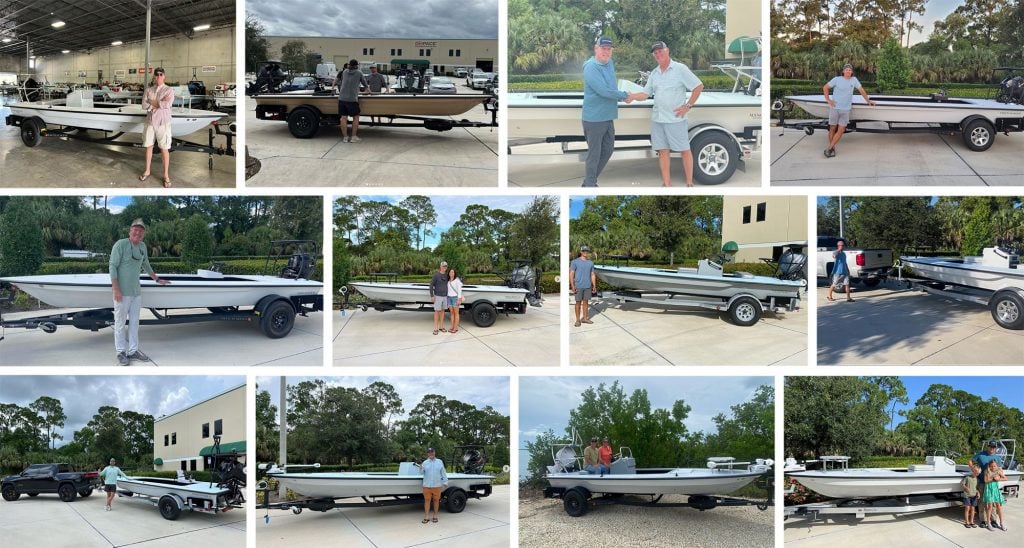
“I've been here for 100 days,” he says, “and production has been at its highest peak in the history of the company. In that time we've gotten close to 30 boats out of the door, which is a tribute to the capabilities of our managers, who have the freedom to maximize the output in their respective arenas.”
Cunningham is also determined to raise the profile of the Chitttum brand throughout the industry.
“The advisory Board of Captains is a big part of that strategy, of course,” he says. “If we can engage with people of this caliber, with their thinking and experience, it’s a real validation of the company’s products. But I don’t just want to do well with Chittum from the business standpoint. I want to do good, too.”
Which is where the recently created Conservation Advisory Board comes into play.
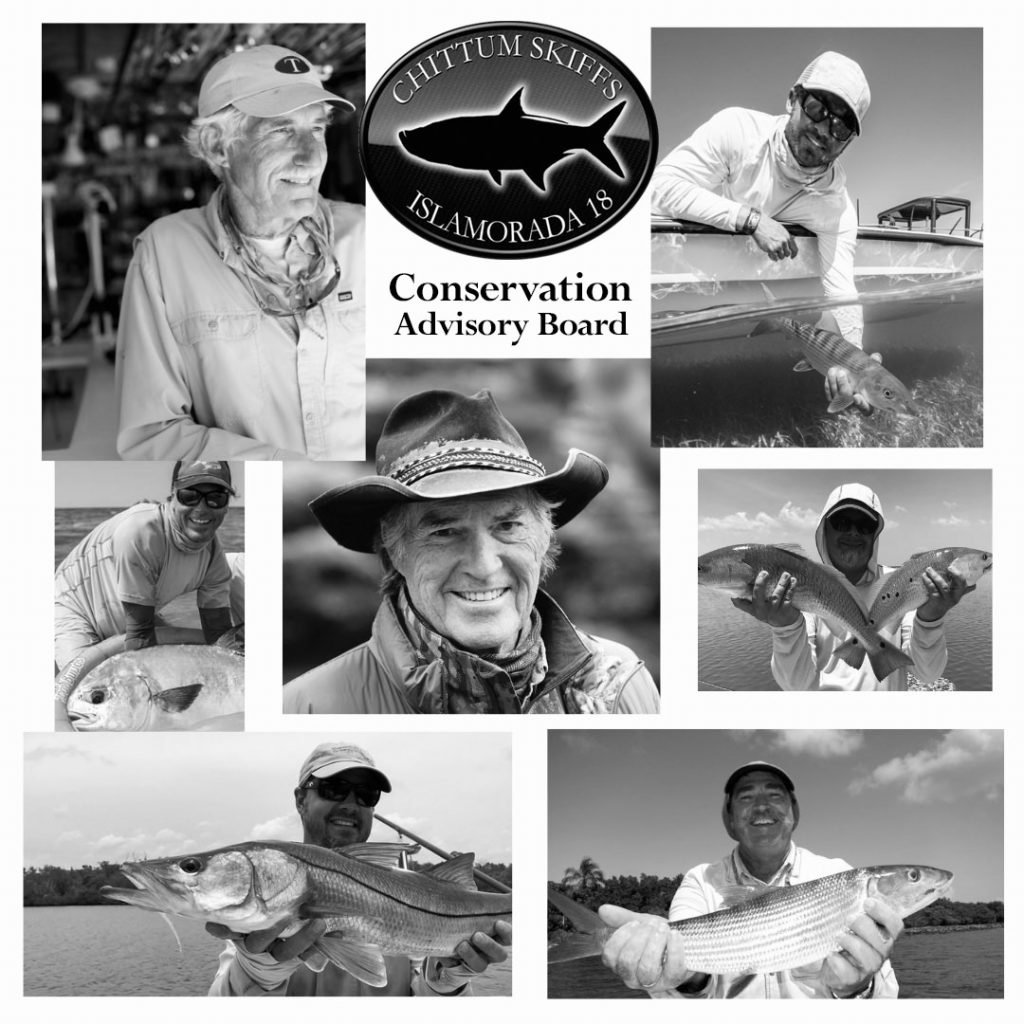
“There are an array of great organizations in the market leading various conservation and environmental initiatives,” Cunningham says, “and we are committed to supporting them. Our greatest accomplishment will be to execute on their ideas to conserve coastal waterways.”
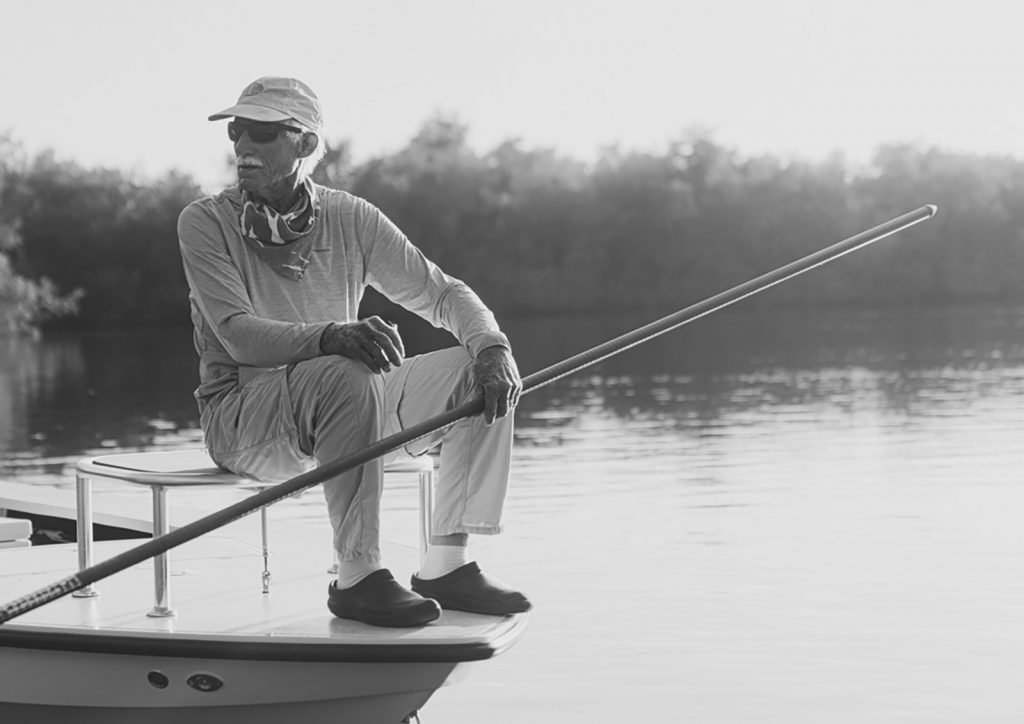
J.T. Van Zandt and Andy Mill are among the board members who will help guide Chittum’s conservation efforts.
“We all have an impact on how we use and exploit the outdoors,” Van Zandt says. “To have a voice that could potentially influence people to make conscientious decisions about their interaction with aquatic ecosystems is invaluable.”
 “We all have to give back,” Mill adds. “We are involved with three different conservation organizations—Bonefish & Tarpon Trust, Captains For Clean Water, and the IGFA. It’s a win-win for us to support groups like this. Not only are we supporting their good work, but the product of their conservation efforts will help ensure healthy fisheries and fishing for the future. And that's where I feel we as a company should direct our conservation efforts.”
“We all have to give back,” Mill adds. “We are involved with three different conservation organizations—Bonefish & Tarpon Trust, Captains For Clean Water, and the IGFA. It’s a win-win for us to support groups like this. Not only are we supporting their good work, but the product of their conservation efforts will help ensure healthy fisheries and fishing for the future. And that's where I feel we as a company should direct our conservation efforts.”
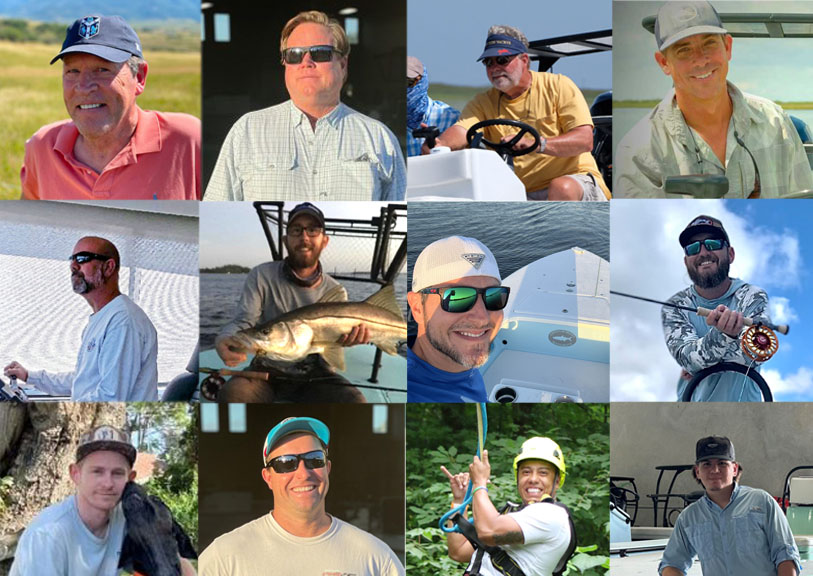
It’s been a frenetic first few months for Cunningham and his new management team, all committed to taking what they already view as the best carbon fiber skiff in the world to the next level of excellence and performance.
“The company went through some pretty dramatic transitions,” the CEO concedes, “but through it all, everyone was so proud of the boat they were producing, and where we’re going as a team.”
For JT Van Zandt, the unparalleled excellence of the product assures success.
“You can’t just hire someone off the street and bring them in and say, now build a boat,” he says. "It's a learned skill. At any stage, if you drill a hole in the wrong place or you cut this one piece too short, it's easily messed up. So every time one is built, you’re depending on the execution, the repetition, the excellence of everyone in the shop. So I would say that within the factory walls of Chittum, you're looking at one of the last custom, hand-built, non-automated, American manufacturing facilities, at its very finest.”
__________
"So I would say that within the factory walls of Chittum, you're looking at one of the last custom, hand-built, non-automated, American manufacturing facilities, at its very finest.”
- Captain JT Van Zandt
__________
Van Zandt’s appreciation of the sheer creative skill that goes into every phase of producing a Chittum skiff is beyond reproach, but leave it to Andy Mill to summarize the changes at the company, and its prospects in the days ahead.
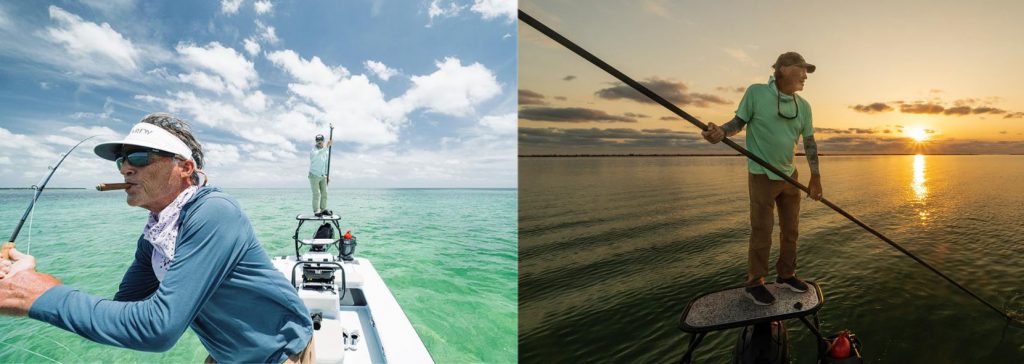
“I've always gravitated to and associated myself with companies at the upper tier,” Mill says. “I’ve had contracts with Range Rover and Rolex watches. So I want to be related to and associated with the cutting edge of companies, and that is Chittum. We build the finest, most sophisticated flats skiff ever designed. It's a company that's continuing to grow, and that's a company I want to be with.”
